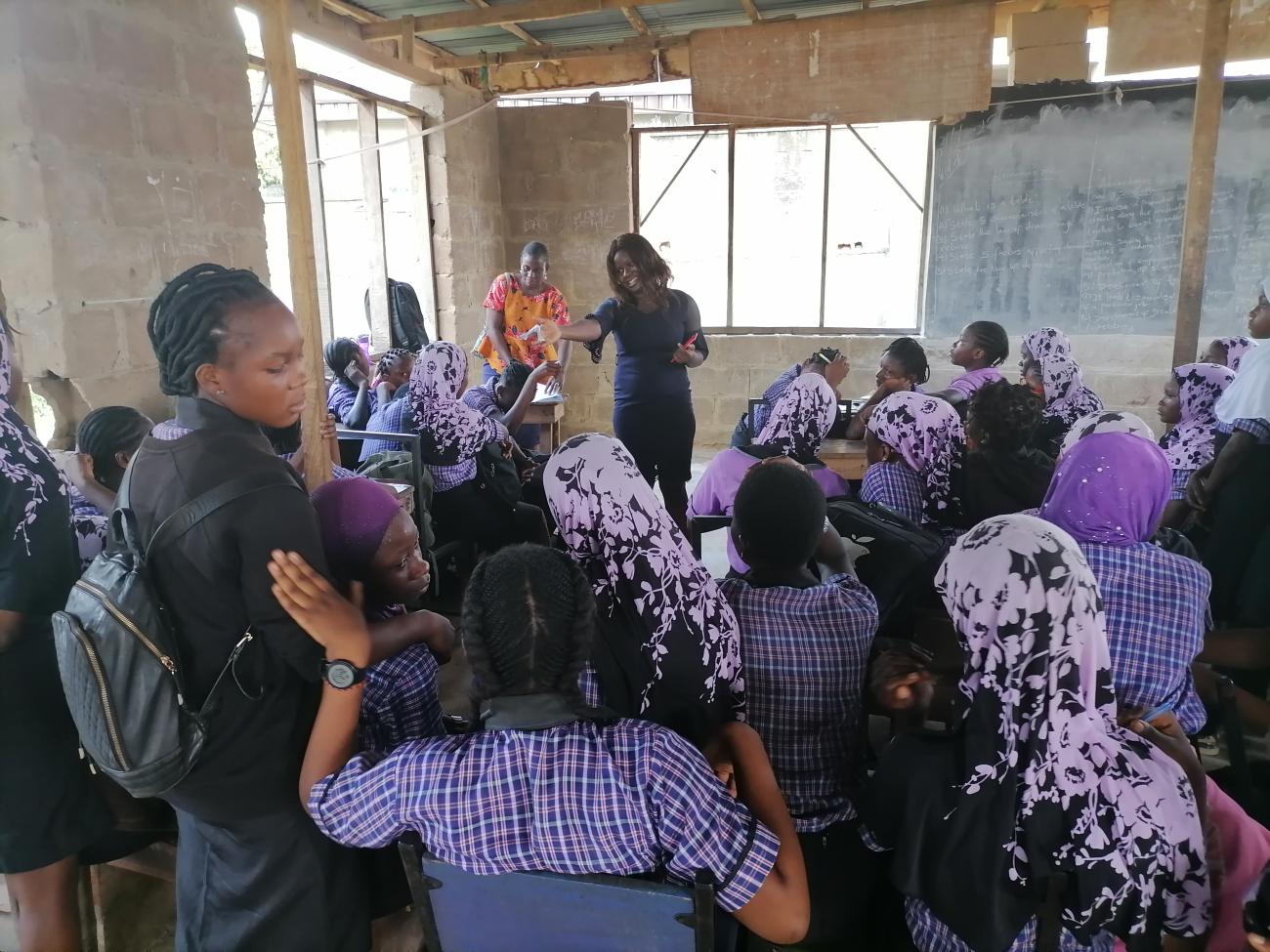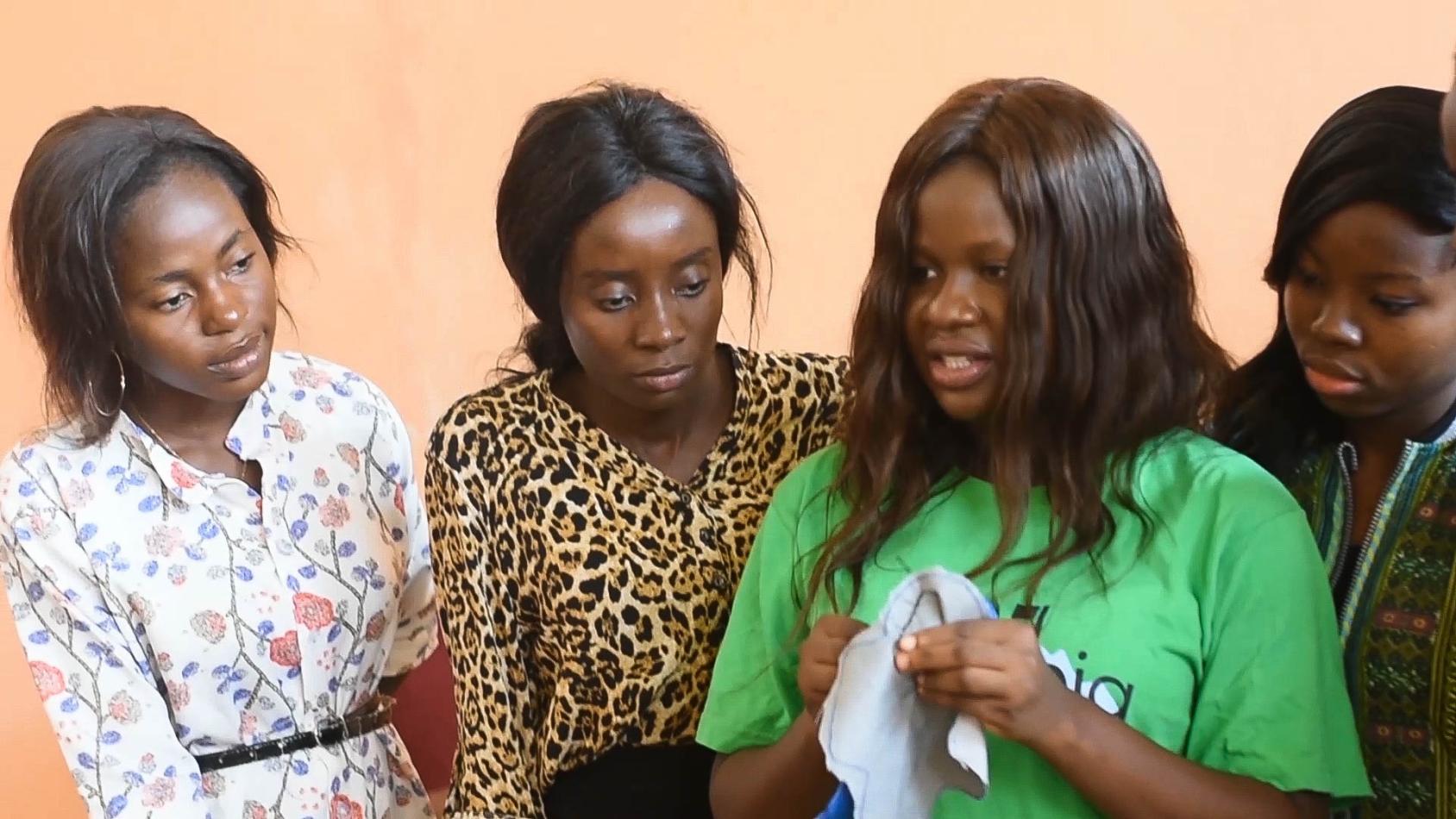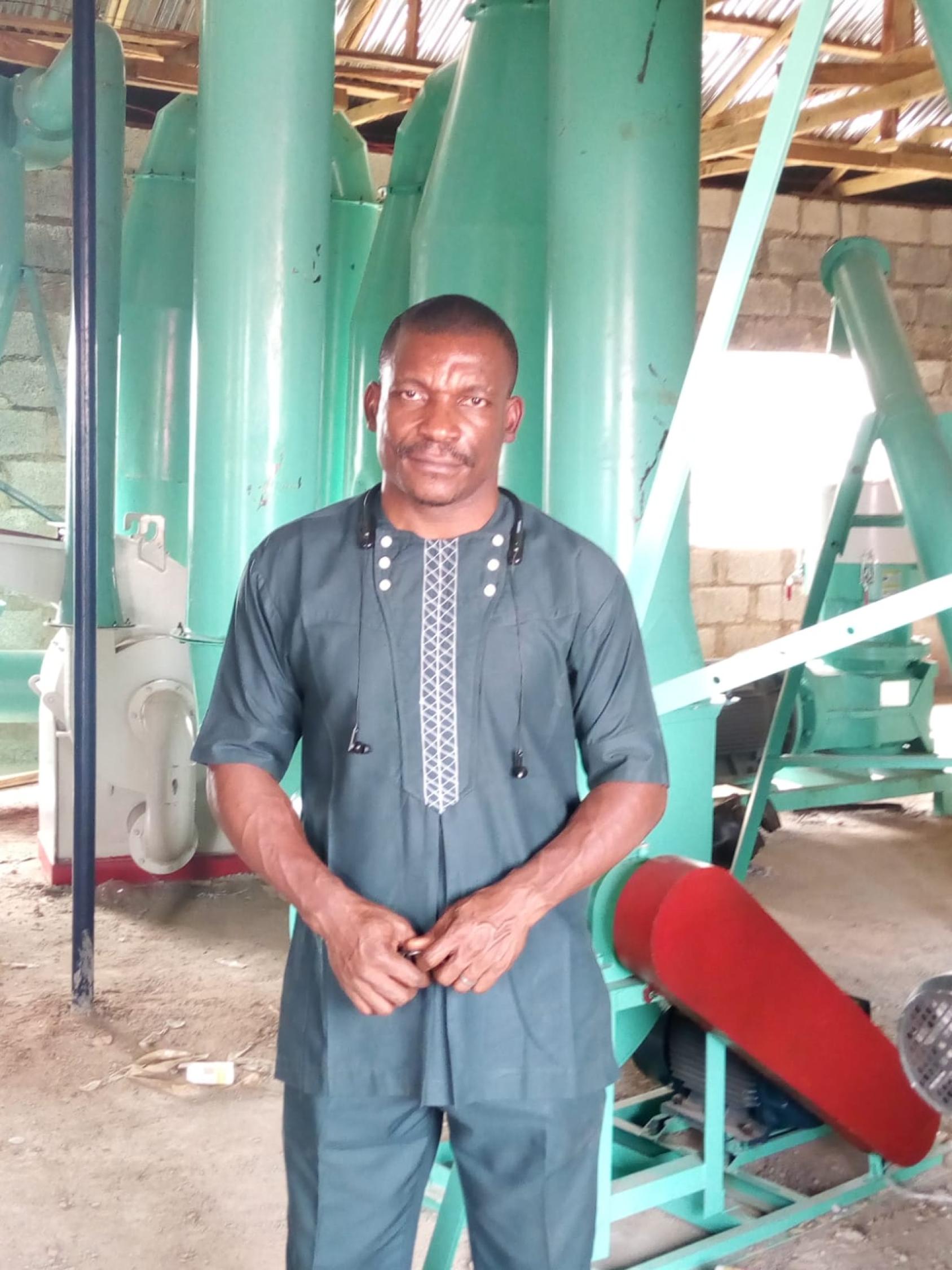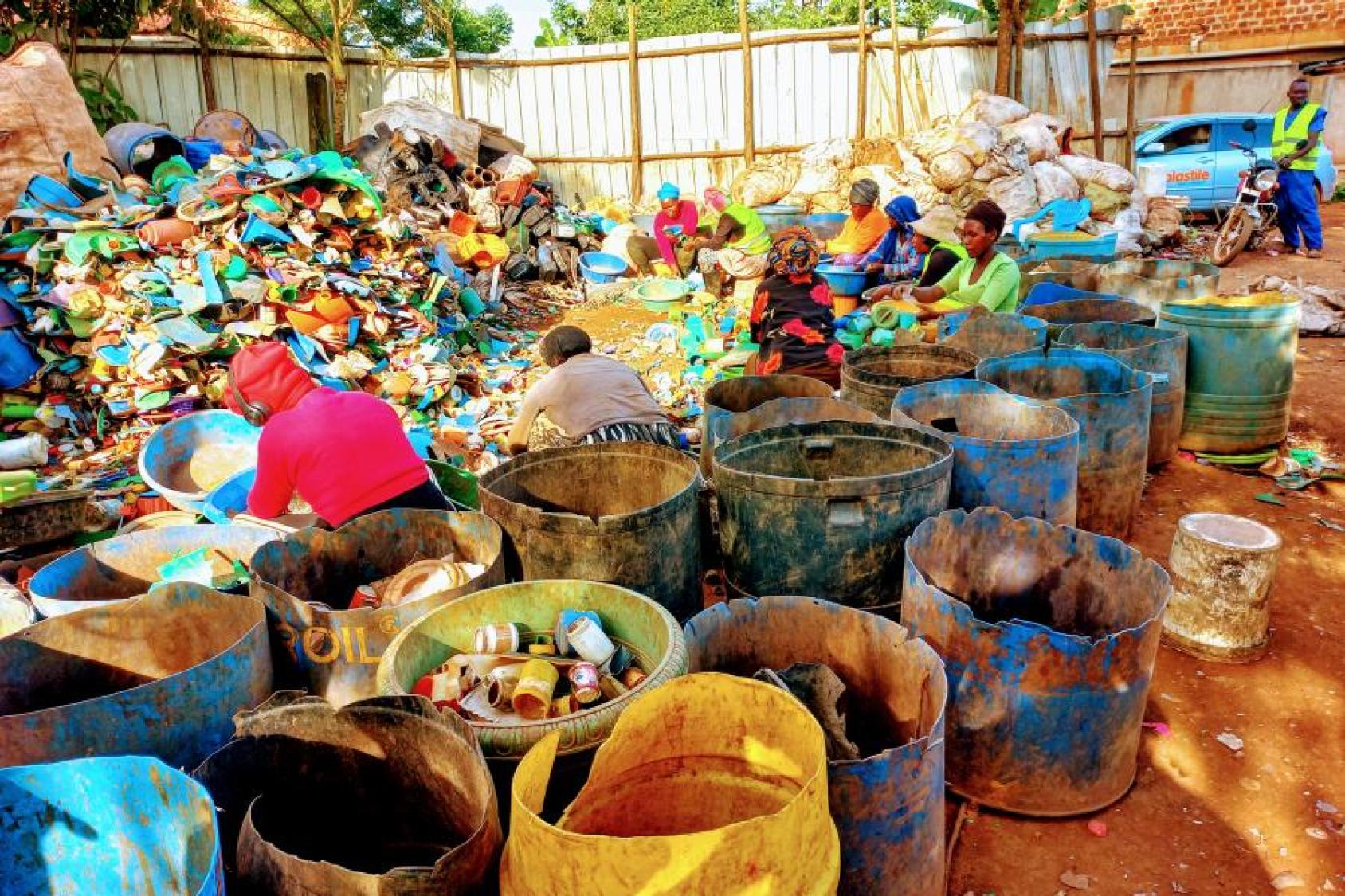King Hamad Youth Empowerment Award for the SDGs: A window of hope for dynamic entrepreneurs in Africa

The King Hamad Youth Empowerment Award recognizes young people’s efforts to become effective, productive citizens, who contribute to the welfare of their communities and environment and help advance the UN Sustainable Development Goals.
Launched at the Youth Forum of the United Nations Economic and Social Council (ECOSOC) in 2017, the prize is jointly implemented by Bahrain's Ministry of Youth and Sports Affairs and the United Nations Development Programme (UNDP).
Since 2018 the award has been divided into two main categories; one for youth action, granting 5 awards, and a second for youth enablers granting 3 awards.
Esther Ajari is a 23-year-old medical student from Nigeria and was one of the recipients of the award in 2020. Esther is now in her last year of medical school, and although she is taking her studies seriously, she also believes there is more to life than obtaining a medical degree.
"I grew up as the 10th child of a polygamous family of 16 in Oghara, a small community in Delta State in the south-south of the country", she said.
"My parents could not afford to buy me menstrual sanitary products. I often had to wear old clothes", she admitted.
Menstruation can influence the rate at which adolescent girls drop out of school. UNICEF estimates that 23 per cent of schoolgirls in Nigeria have missed school in the past 12 months because of their period.
According to the UN Population Agency (UNFPA) the difficulty in affording menstrual products is the one of the main reasons women and girls are staying at home during their periods and missing school and work. This copying mechanism exacerbates existing vulnerabilities and can have lasting consequences on girls’ education and economic opportunities.

Today, Esther has committed herself to combating period poverty and changing the narrative about health, gender equality, and education in Africa.
In 2018 Esther founded TriHealthon, an NGO which promotes health equity and aims to improve the health and wellbeing of vulnerable populations across Africa, particularly women and children. Since starting the NGO, Esther has overseen many projects, including a programme that has taught more than 2,500 Nigerian girls and young women how to make their own reusable biodegradable menstrual sanitary pads.
After receiving the King Hamad Youth Empowerment Award in recognition for her contribution towards advancing the SDGs, particularly SDG 3 – Good Health and Wellbeing, and SDG 5 Gender Equality- Esther was able to strengthen the impact and visibility of her NGO.
"Winning the award has enabled us to double our impact figures and establish more partnerships. The award has increased national and global recognition of what we have to offer," she said.
Sustainable cooking stoves
Okey Esse is a self-taught social entrepreneur from Nigeria who focuses on sustainability. He says that he inherited this social entrepreneurship spirit from his mother, who is a successful businesswoman.
In 2018 Okey founded Powerstove Energy, a company that designs, manufactures, and distributes affordable, clean cooking stoves that self-generate electricity.
"So many families in Africa still rely on charcoal, firewood and kerosene for their daily cooking needs, but with increasing prices because of urbanization and deforestation, they struggle to afford these cooking means”, Okey explains.

The clean cooking, sustainable stove supports vulnerable families across Nigeria in a number of different ways.
"We like to think that our products improve the users' livelihoods by combating poverty and indoor air pollution as well as gender-based violence."
Okey also supports NGOs that focus on nutrition and food security, gender equality, HIV/AIDS advocacy, and accessible primary healthcare services.
"The award helped increase our brand and, most importantly, helped us to acquire a brand-new factory with 25,000 units' monthly capacity. This funding opportunity by King Hamad Award has also opened more doors of funding from internationally recognized NGOs and governments, further deepening our product acceptability in target communities."
Dreaming of a sustainable, green Africa
27-year-old Franc Kamugyisha is social entrepreneur from Uganda. He is the founder & CEO of a climate-tech materials company in Uganda that provides a solution to waste management and affordable housing through incentive-based plastic recycling.
"I dream of a sustainable, green Africa, freed from poverty, unemployment and indecent housing", he said.
The idea of the company came from Franc's personal experience of living in a slum community in Kampala when he first arrived in the city in search of a job.
There he witnessed first-hand the dire consequences of a poor waste disposal system with plastic packaging littering the streets, clogging sewers, and encroaching upon poorly built houses during heavy rains.

"With neighbors, I would wait late in the night or very early in the morning to go and dump waste in the nearby drainage channels in the neighborhood to avoid high costs paid to private companies", he explained.
According to UN-Habitat, nearly 1 billion people – one in four urban dwellers – live in urban slums and informal settlements worldwide. Municipalities in low-income countries spend about 20 per cent of their budgets on waste management on average, yet over 90 per cent of waste in those countries is still openly dumped or burned. Cost-effective ways of adapting landfill sites to reduce emissions and improve safety are becoming more widespread in Africa.
“The King Hamad Award funding has enabled new partnerships, including a micro-financing scheme for 510 waste collectors which has increased plastic waste collected from seven to 30 metric tons per month,” Franc said.
“Thanks to the growth fueled by the award, we have increased long-term, stable employment instead of casual wage positions for informal waste pickers, and increased access to healthcare insurance.”
This piece was adapted from a story originally published by UN Bahrain. Editorial support provided by the UN Development Coordination Office. To learn more about the UN's work in Bahrain, visit: Bahrain.UN.org.
To find out more about the results of our work in this area and beyond, read the SDGs section of the 2022 UNSDG Chair Report on DCO.
To learn more about the actions needed to recover from the COVID-19 pandemic and rescue the SDGs read the 2022 edition of The Sustainable Development Goals Report. The report provides a global overview of progress on the implementation of the 2030 Agenda for Sustainable Development, using the latest available data and estimates. It tracks the global and regional progress towards the 17 Goals with in-depth analyses of selected indicators for each Goal.





































